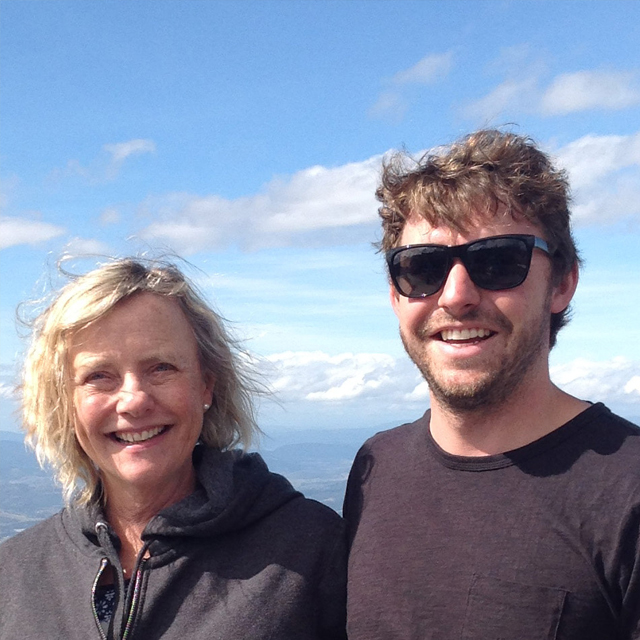1. Tell us about your experience in grape growing?
We’re a family farm located East of the township of Watervale in the Clare Valley.
We have been involved with both broad acre and livestock farming and horticulture with the Castine family farming in Watervale since the early 1900’s and as a result, have a longstanding passion and tradition for caring for our property.
In 1997, we decided to diversify, by planting our first block of Shiraz. Since then, we’ve added another 90 acres of vines, including Cabernet Sauvignon, Riesling and Grenache..
2. What prompted you to want to be involved in the EcoVineyards project?
We have a passion for sustainable agriculture including viticulture, as we feel that the changing climate will greatly affect those properties that are not addressing these threats now.
Adapting to these changes, together with reducing our chemical (e.g. pesticide, herbicide and fungicides) and environmental impact (i.e. efficient water usage), will ensure that our property is viable and sustainable for future generations.
3. What do you hope to achieve from your involvement in the EcoVineyards project?
This will be a great opportunity to gain knowledge in integrated pest management and sustainable viticulture practices from experts in the field such as Mary Retallack and her team.
We hope to establish practices that can be implemented and easily adapted by other growers around the region.
4. Have you tried to increase biodiversity on your property before undertaking this project? If so, how?
Over a long period, we’ve been working with organisations such as Trees for Life to re-vegetate our property.
This has been mainly in our pasture paddocks, so the opportunity to increase biodiversity in our vineyard is well timed.
5. Why do you think it is so important for growers to try and build natural resilience on their property?
Problematic insect and weed resistance to pesticides and herbicides is a worrying trend, which looks as though will increase in the coming decades.
We see promoting natural resilience through physical control of insects and weeds (e.g. through holistic management techniques including IPM) as an effective, evidence-based way of combating this increasing problem.
6. Looking to the future, what do you see as a new ‘normal’ for grape growers on their properties?
Recent climate modelling by various environmental agencies show that the Clare Valley (and most of Australian wine growing regions) can expect hotter temperatures, a greater number of unpredictable weather events and reduced average rainfall.
We believe that in the future, growers may be unable to successfully grow varieties that they have previously grown due to this changing climate.
In the short term, we believe that this can be mitigated to some extent by building resilience in their vineyards, however the longer term outlook for varieties such as Riesling in the Clare Valley may be untenable.
Planting of different grape varieties and or clones to adapt to these more severe and unpredictable weather conditions (i.e. heat, frost, lack of rainfall), may well become necessary.
READ THE CASE STUDY

